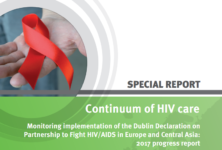PARIS, September 13: ABIVAX, an innovative biotechnology company targeting the immune system to eliminate viral disease, reported that it has completed the second key milestone of the Strategic Industrial Innovation Project CaReNa.
Started in 2013, this collaborative project led by ABIVAX with the participation of CNRS and Theradiag intends to develop new therapeutic and diagnostic solutions targeting the protein-RNA interactions with HIV/AIDS as the primary indication. The total cost of the project is 18.2 M€, of which 13.6 M€ will be born by ABIVAX. The project benefits from the help of Bpifrance in form of refundable loans and subsidies totaling 7.3 M€, of which 5.2 M€ are used in ABIVAX operations. So far, the Company has received 3.4 M€ and 1.8 M€ are still to come before the end of 2018.
The completion of this second key milestone of CaReNa is the consequence of the progress achieved in the development of the Company’s flagship project, ABX464, a clinical stage therapeutic candidate that may become a key part of a functional cure for HIV/AIDS.
ABIVAX discovered ABX464 using its unique and proprietary antiviral technological platform (set up in collaboration with the CNRS and the Curie Institute) dedicated to generating small anti-viral molecules with a novel mode of action. The platform is based on biological screening systems, built on a thorough understanding of the processes involved in viral RNA splicing inside human host cells that can reveal the ability of ABIVAX’s proprietary chemical compounds to inhibit protein-RNA interactions.
ABX464 is a novel, first-in-class small molecule with unique properties and mode of action. It has not only been demonstrated to inhibit viral replication in vitro and in vivo, but also to induce a long-lasting reduction of HIV viral load after treatment interruption in animal models. As a result, scientists believe this molecule may be the first of a new class of anti-retroviral drugs, which may lead to a functional cure for HIV patients.
ABX464 is currently in mid-stage clinical testing and could be approved for use in patients as early as 2020. In 2014, two Phase I studies conducted on healthy subjects demonstrated that the product was well tolerated at the anticipated therapeutic doses. In 2015, a phase IIa study in 80 patients infected with HIV provided initial evidence of the activity of ABX464 in humans. Data from this placebo-controlled dose-escalation study, presented in February 2016 during CROI (Conference on Retrovirus and Opportunistic Infections) in Boston MA and in July 2016 during the 21st AIDS Conference in Durban-South Africa, demonstrated the safety and efficacy of ABX464 monotherapy in the treatment of naive patients infected with HIV. A reduction in the viral load of at least 0.5 log (more than 68% reduction) was observed in 1 patient out of 6 in the 75 mg group, 2 patients out of 6 in the 100 mg group and 4 patients out of 6 in the 150 mg group. There was no significant variation in the viral load in the 6 patients who received a placebo in these groups. The undesirable effects noted were those typically observed in the context of antiviral treatments.
In order to demonstrate the long-lasting effect in HIV patients, a second Phase IIa study has been initiated in Spain, France and Belgium. Known as ABX464-004, this study is designed to demonstrate the long-term effect of ABX464 on the viral load that had previously been observed during preclinical trials. The study plans to recruit 28 patients suffering from HIV, whose infection is well controlled by “boosted” Darunavir, one of the reference anti-retroviral treatments for AIDS. ABX464 is being administered to 21 of these patients in addition to their regular anti-retroviral treatment (ART). The 7 remaining patients receive a placebo, in addition to their ART. After 28 days, all treatments are stopped, and the study then measures the time to reappearance of the virus in the blood of the patients. The main efficacy criterion of the study is the time to viral load rebound. This rebound has been studied and shown to come from the “HIV reservoir”, or pockets of virus hidden in areas of the body that are not affected by the current combinations of ART. The preliminary results of the study will become available before the end of 2016.
“The validation of the completion of the second critical milestone of CaReNa by Bpifrance represents important recognition of the advances achieved in the development of our drug candidate ABX464 and provides additional non-dilutive funding to progress towards future milestones,” said Prof. Hartmut Ehrlich, M.D., CEO of ABIVAX. We are grateful to Bpifrance, which has been supporting the project from the very beginning and continues to bring us critical resources for this development program and the expansion of our anti-viral technology platform”
ABIVAX is an innovative biotechnology company focused on targeting the immune system to eliminate viral disease. ABIVAX leverages three technology platforms for drug discovery: an antiviral, an adjuvant, and a hyper-immune platform. ABX464, its most advanced compound, is currently in Phase II clinical trials and is a first-in-class oral small antiviral molecule which blocks HIV replication through a unique mechanism of action. In addition, ABIVAX is advancing multiple preclinical candidates against additional viral targets (i.e. Chikungunya, Ebola, Dengue) as well as an adjuvant (immune enhancer), and several of these compounds are planned to enter clinical development within the next 12 to 18 months. A recently updated corporate presentation, which includes a timeline for the company’s anticipated news flow, is available at www.abivax.com.


 ПОИСК ПО САЙТУ
ПОИСК ПО САЙТУ  поиск по ресурсному центру
поиск по ресурсному центру 


